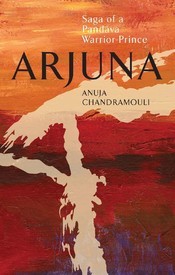Review:
I have received this book from Reshmy Pillai (of thetalespensieve.com) for reviewing this book. She had given me 10 days to review this book from the day I received it, which I have broken a week back. For that I want to apologize to Pillai and whoever she is responsible to.
Anyway, I am not going to further bore you stating around about my time spend in vacations and all. Let me hop back to the review of this book.
Before I move on with the review, for the final time in this review, I want to apologize again for the delay.
Plot (from the jacket):
It is the journey of Prince William and Princess Sara, the protagonists,through the magical and spiritual worlds of Pantolis, Hiblisk, and Ikra. As their voyage unfolds, they realize the true motive behind the terror employed by the dark forces of Dushtt to claim supremacy over the lands of Pantolis and beyond. Every new revelation brings to light the methodical madness employed by the dark forces and secrets of Mother Nature, which have been safely guarded for ages by the various civilizations of the secret worlds.
Their journey also introduces them to the divine forces that monitor the functions of the world and gives them access to legendary, mystical weapons and advanced spiritual knowledge which illuminates the flow of their understanding and actions towards various aspects of life. They use the knowledge gained, to try and bring peace, to their war ravaged lands and fight the ever-growing might and influence of the mysterious dark forces that haunt their kingdoms.
Will the light of all that is divine, fighting under the banner of Prince William and Princess Sara, flicker away into oblivion against the might of the dark forces under Dushtt, or will they survive? ...Only time in her womb holds the answer, potent enough to change the outlook of the very world we live in.
About the author (from the jacket):
Sumukh Naik is a Hotel Management graduate (B.Sc. Hospitality and Hotel Administration) from IHM - Goa. He also holds diploma in IATA and PGDBA. He is human resources professional and stays in Mumbai.
My take on the book:
Cover design:
The very first impression I grasped when I first saw the cover design of this book is it perhaps is a self-help book. The pyramid and the glowing circle in the middle of it depicts one of enlighten or illumination. Also here, in Hyderabad, there is a new field of meditation in rounds, known as Pyramid Meditation. It was like the typical meditation, but in this case, they meditated under a pyramid-shaped object. The pyramidal object would be hanging overhead. I never had the intention to dig out more detailed information, though. Probably, they would be having their theories and explanation powered by some real-life examples and myths.
To some extent, the cover design is apt for the story. But only to some extent.
On the contrary, though the book drags attention due to the mystic blend of colours, it doesn't encourage many to pick it, read the description and carry it on to the billing counter. The cover could have used a lot more effort.
Language:
The language used in the book is one of the best I came across these days. It is both simple and complex at the same time. There was a intense use of simple words and expressions with occasional touch of complex words and expressions.
I have come across many editorial mistakes across this book. There are quiet a few dialogues by single person that stretch pages-long. In that case, many a paragraph missed the quotation marks. Other than, there were minor spelling mistake, like listed below.
- Page 19 - 'Tell' was spelled as 'Tel'
- Page 30 - 'Crisis' was spelled as 'Crises'
- Page 34 - 'The' was spelled 'They'
There were quite more - like in the pages 38, 40,44,46,48 - till some point I was circling the mistakes, post 48th page I started to overlook the mistakes. It was spoiling the very enjoyment of reading a book. Hope author gets the book properly edited before the release of the next edition.
After editorial mistakes come senseless expressions - or rather, sentences. At least, they didn't make sense to me. Let me name a couple of them, I noticed.
- On page 297, there is a sentence, 'William and Sara saw a young man standing about fifteen feet wearing a white kurta, a dhoti and golden armour'.I was dumbstruck to visualize someone wearing a golden armour with a simplest attire of kurta and dhoti! But then, it is a Fantasy and anything is possible in Fantasy.
- On page 301, there is a description and explanation of importance of Pyramid depicts its spiritual details. A sentence reads, ' "Also note that the pyramidal structure looks like an hour glass when viewed from the top" ', and goes on to explain the importance of time and all. When I came across this line, I put the book aside and started to wonder, in what world does a pyramid look like an hour glass when viewed from top! After an hour of pondering over the topic and detailed examination of different hour glasses on the web, I came to the conclusion that, maybe, author meant to say, 'Also note that the pyramidal structure looks like the topper - bottom, in actual - half of the hour glass'. I still doubt he meant that, though.
Publishers:
APK Publishers. Age of Hiblisk is the first book I read from these publishers. The inner side of the front cover of the book depicts many other fictional works from these authors, but I never read, or rather never heard, of those books. Maybe the publishers are new. In that case, I wonder they bagged so many books. Maybe, they are small time publishers, but then, AOH holds the story and language worth for bigger publishers. Anyhow, I am unbiased in the case to judge the publishers. Hope to read some more books from these publishers, soon.
Story and other aspects:
To carry on further with the review I have to come to the conclusion whether the book is shelved under 'Self Help' or 'Fantasy'. If both, I am in a huge mess. Because there are pages and pages of lessons, teachings and secrets of illumination and enlightenment. It was a hell, at least for me, to read all those dialogues passing on the torturous lectures about being happy and all. I would swear on anything, there is a 10-page conversation on the message from Mahabharatha. Though, I am not a meditating kind of a person, I have my share of interest in such stuff. But here, in the case of this book, I was expecting a thrilling, adventurous story of war and magic, and lot of word of Fantasy, but these enlightening facts were very depressing and boring. This is where the tagline comes in, A story with a soul. Soul depicts spirituality, which in turn points to meditation, enlightenment and eventually Nirvana. If the core aim of the book is self-help, then why the whole cover of wars, kingdoms and magic? Well, I am not enlightened yet and that is beyond my comprehension.
I have to say that the author is not eligible to write a Fantasy novel. He lacked the power of imagination. Maybe he could imagine world and setting but he failed in creating new names. There are two maps or rather two rectangular, funny-looking images printed on a single foldable page glued inside the back cover. The depict the maps of Pantolis and Hiblisk - two different worlds, I came to know later in the course of reading the book. There is a village named, Ooty. Come on, can't you be more creative in naming the villages? And then, the name of the capital, Rajdhani. Rajdhani in Hindi literally means capital. I don't see any creativity in it. A new, at least pathetic-sounding, name could have done a great deal of good to the story.
In short, the concept of the book was awesome, but the author's effort in adding mysticism to the story had ruined the very basis of attempting to read this book. Another added advantage to the book is the unanticipated twist in the end. The twist messes up everything and at the end of the story, the reader is left with the dawning of the realization that hit him so hard just then.
I loved the exclusive bookmark, also.
One side of the bookmark.
The other side, depicting the name of the book and when inverted, a ink bottle with a writers' feather dipped.
Recommendations:
To those who have the caliber to understand the spiritual stuff and wanted to experience spirituality through fiction.





















